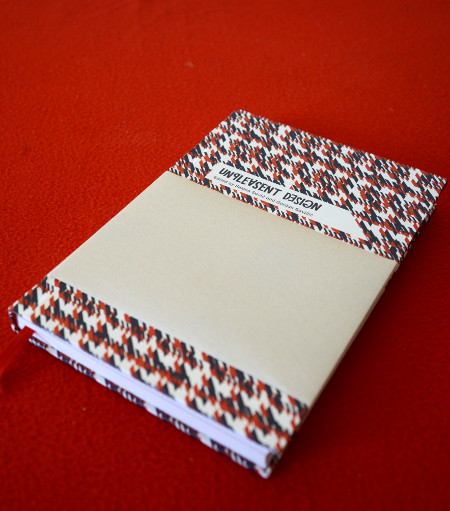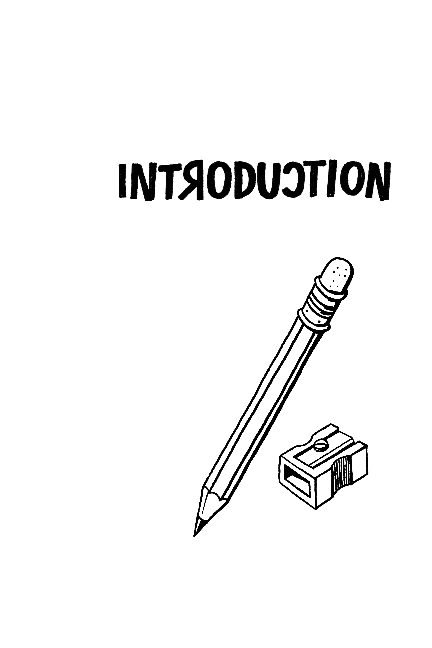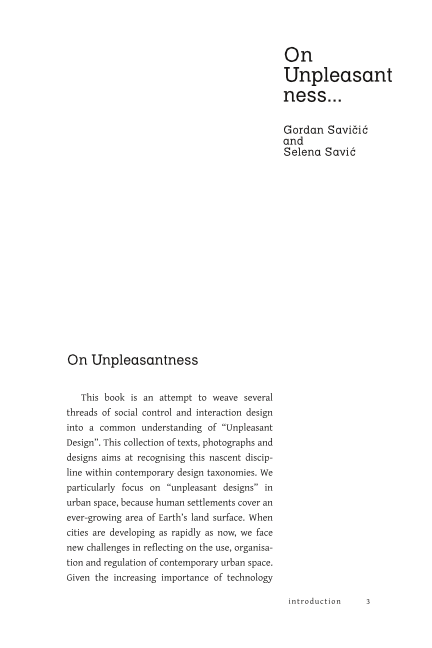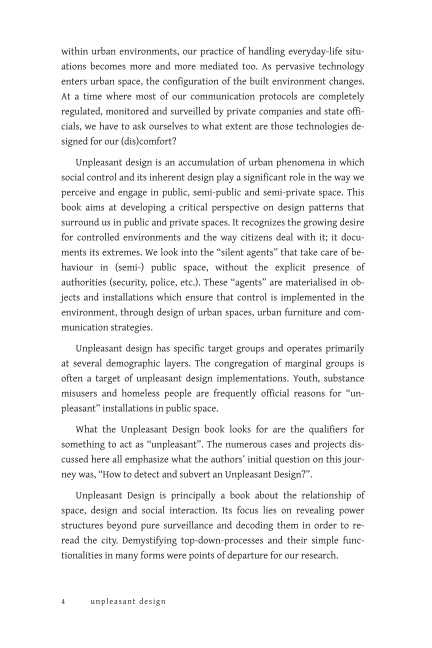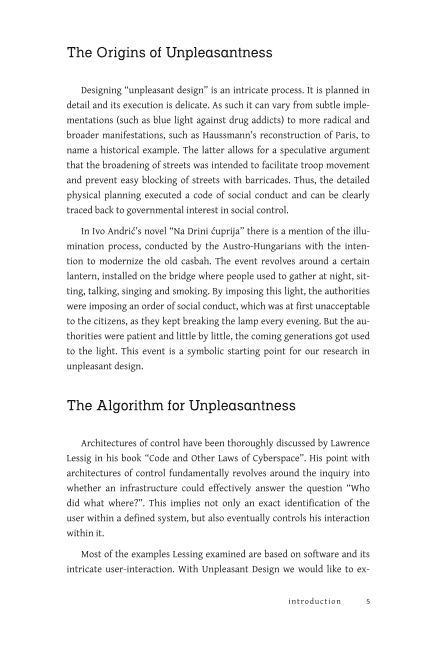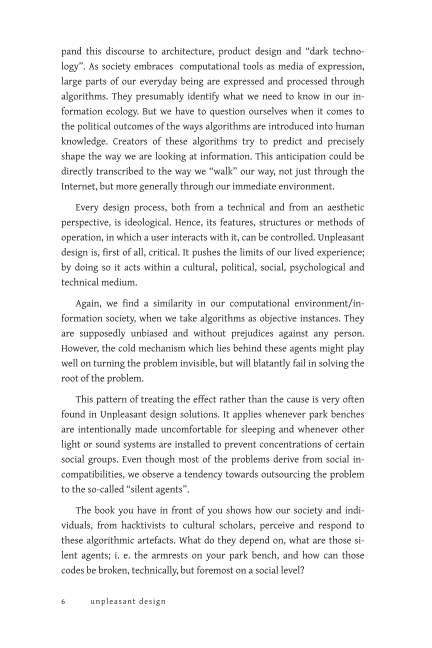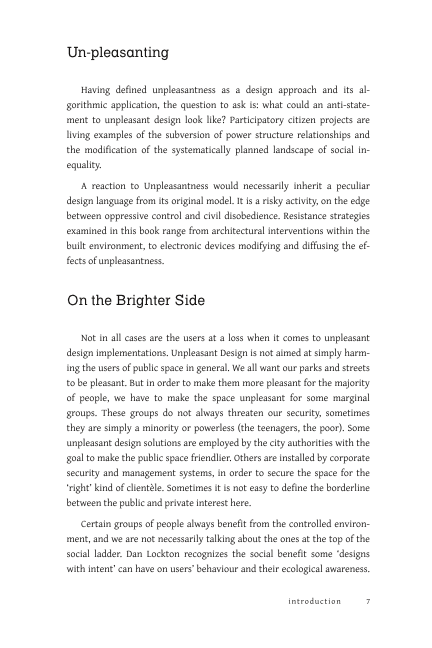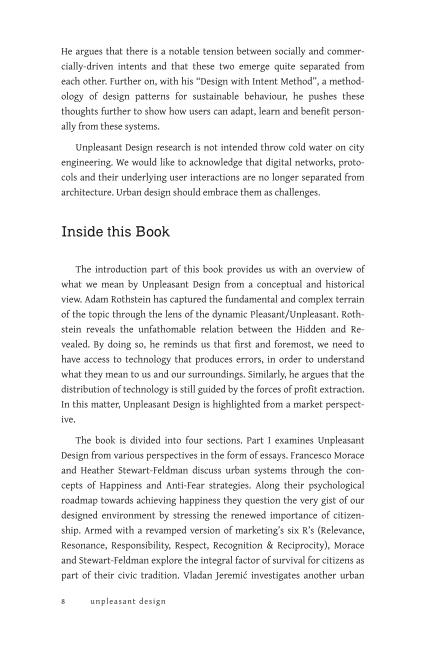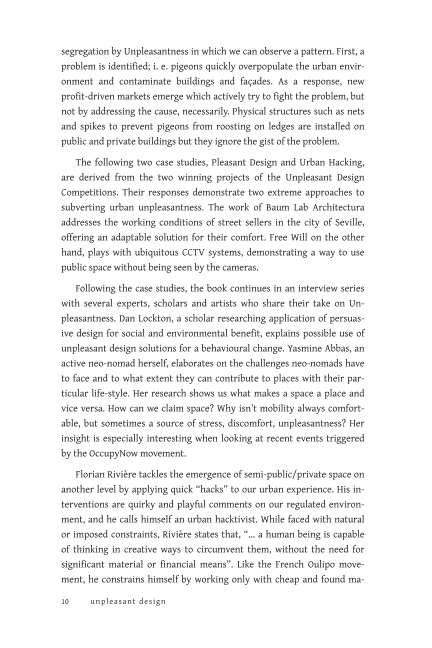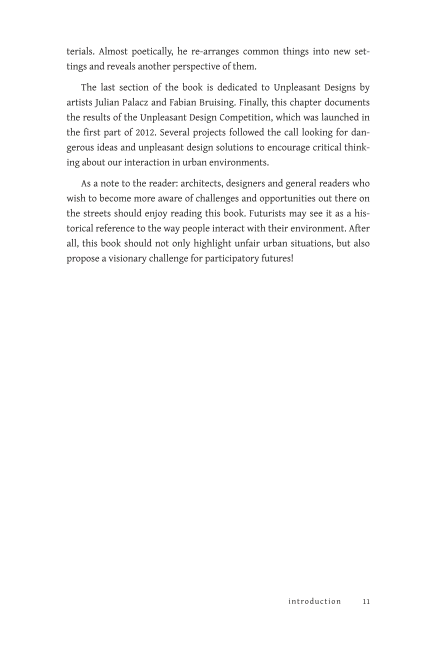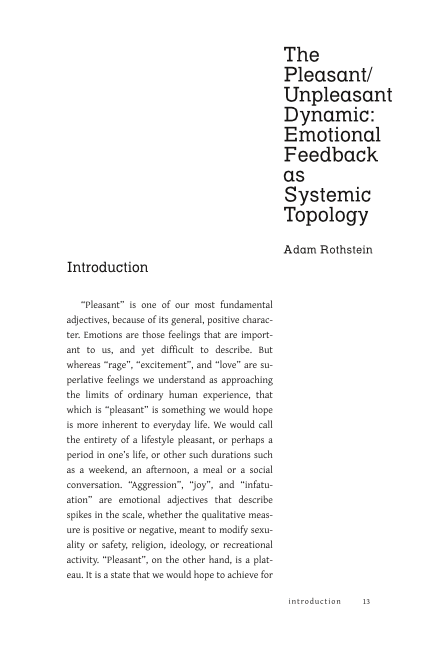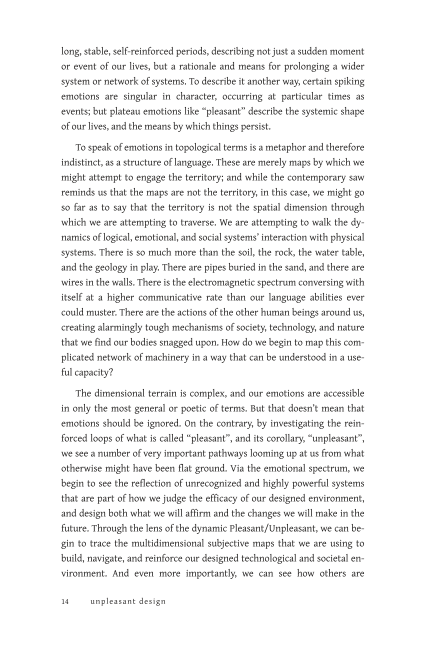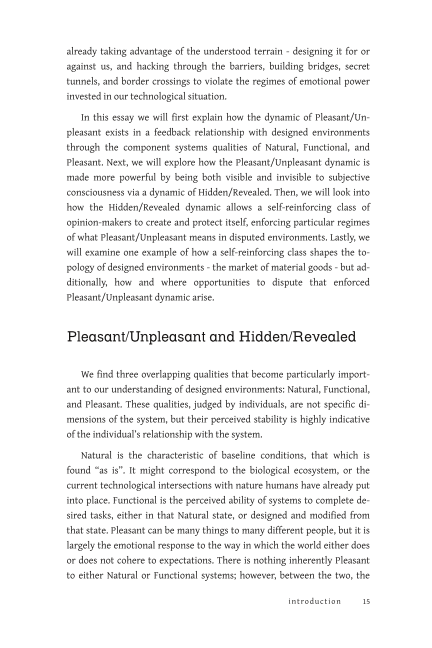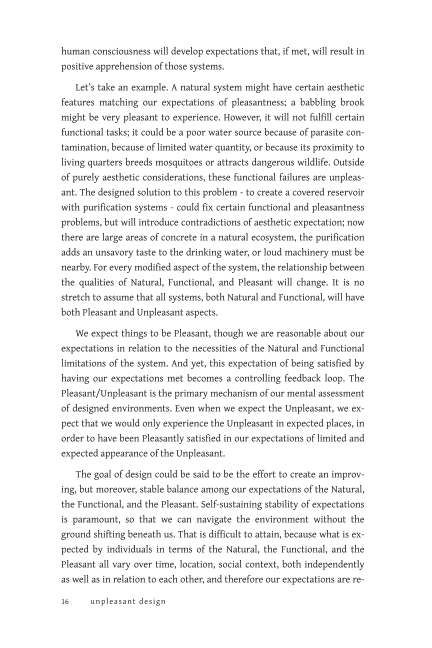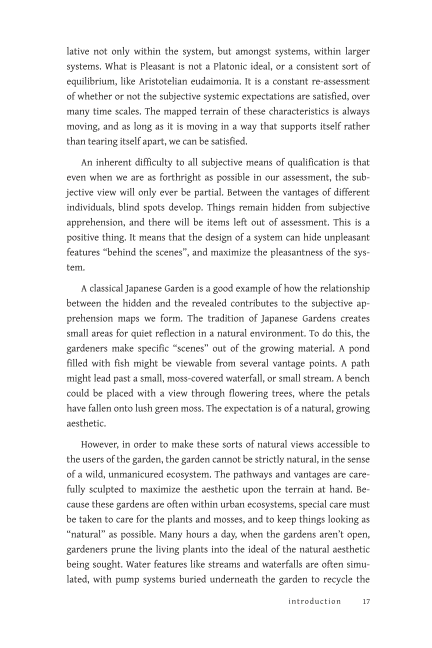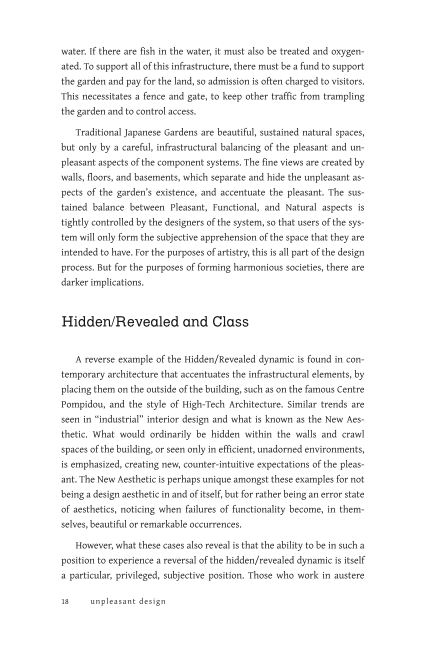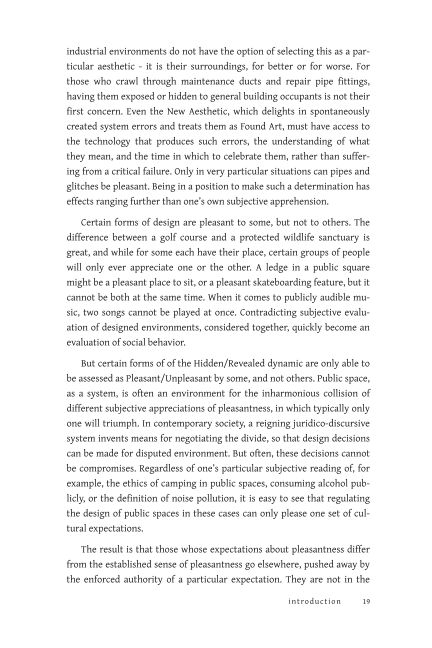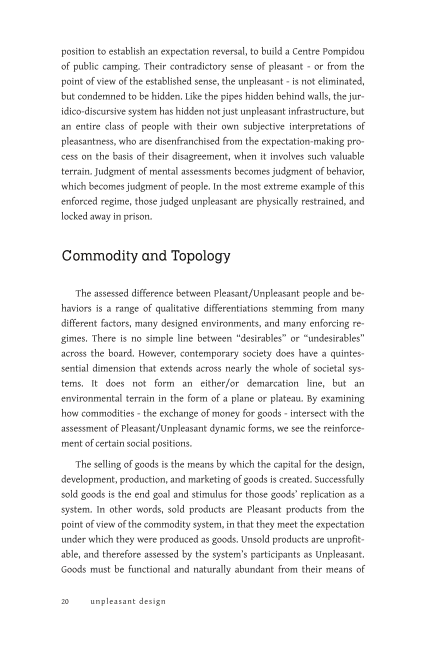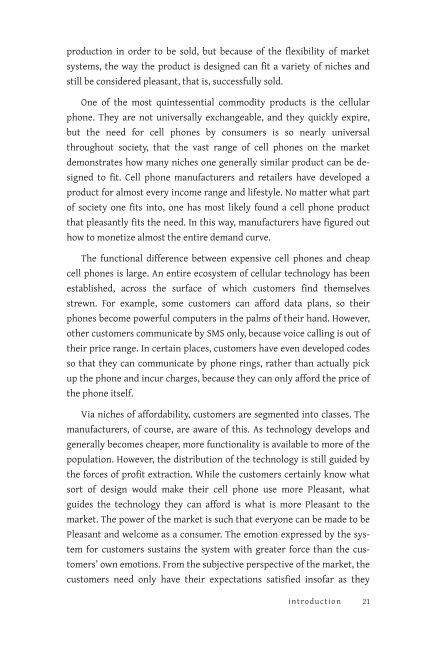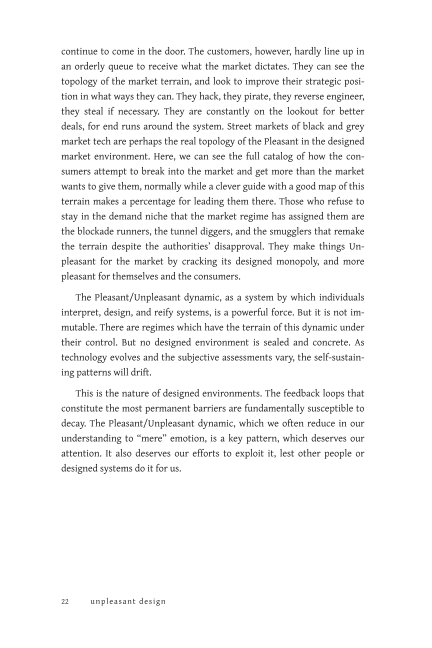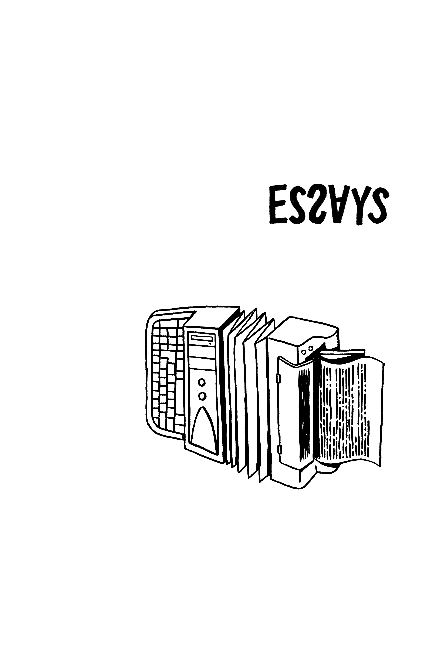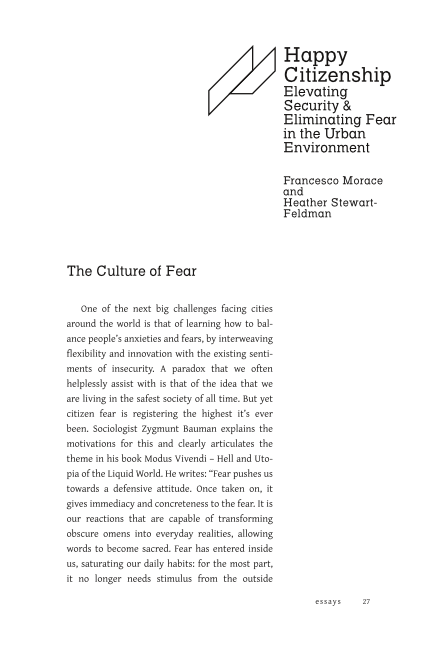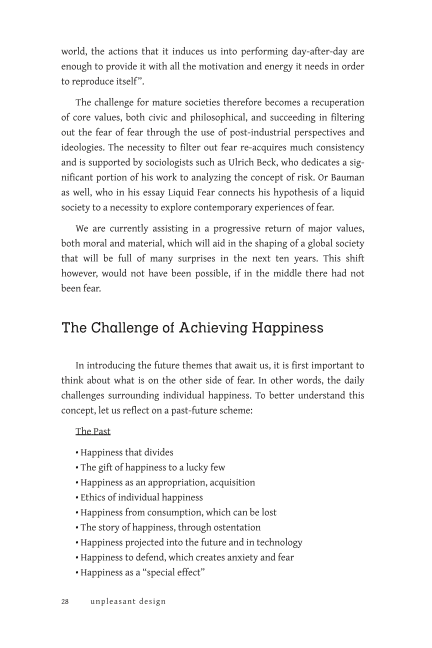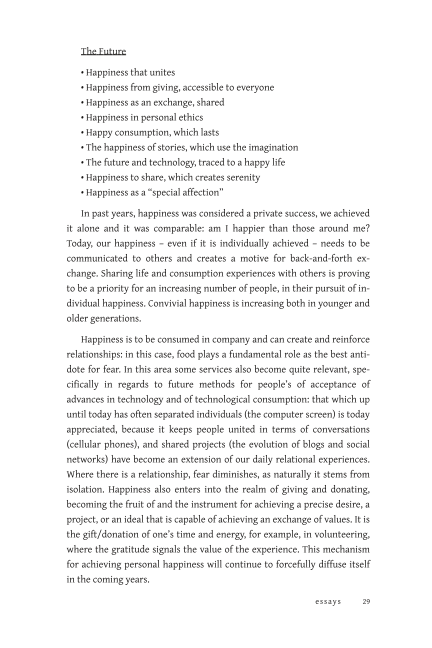Pigeon-chiq-wear is a fashion collection that addresses the rise of unpleasant designs; sharp spikes at building facades, monuments, rooftops have been widely deployed in cities in order to deter birds and other animals. Such attitude to animals is seen as a metaphor for similar strategies against marginal social groups.
The fashion collection serves as playground for a future vision on wearables that exert similar authoritarian control. It explores the aesthetics of unpleasantness while at the same time highlighting its hostility increasingly found in contemporary urban design. The fashion collection was presented for the very first time in the streets of Milan in June 2014. A city that is known for its “pigeon problem”, especially around historical monuments, where most shots were taken.
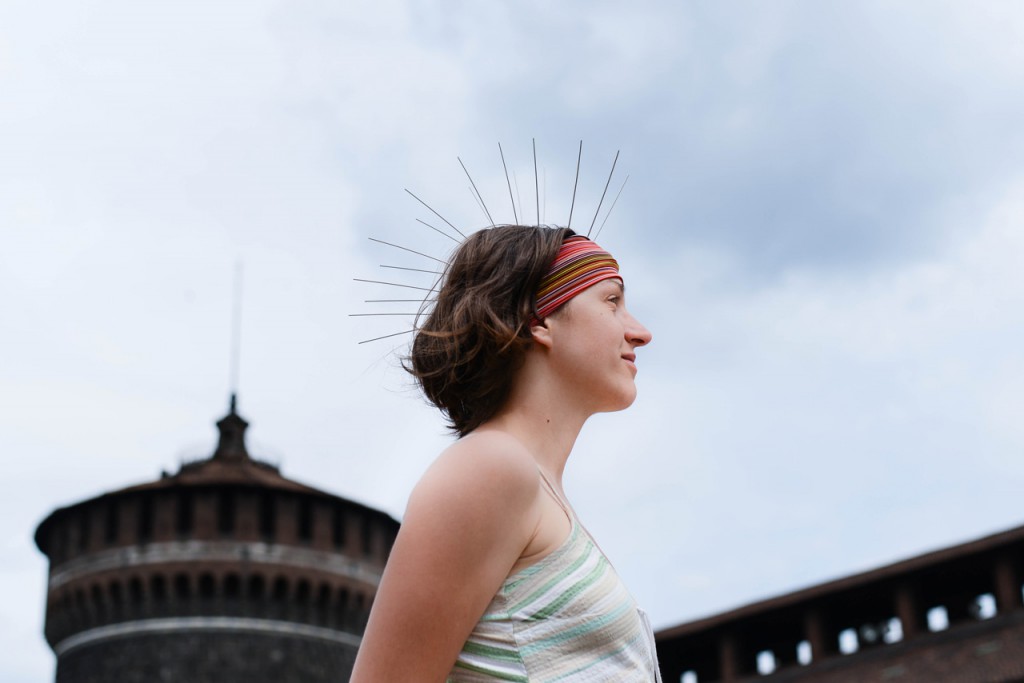
Anti-pigeon hat: Summer Rainbow
Our colleague and book contributor Nikola Korac designed a poster highlighting the exclusive garbage container situation in Belgrade.
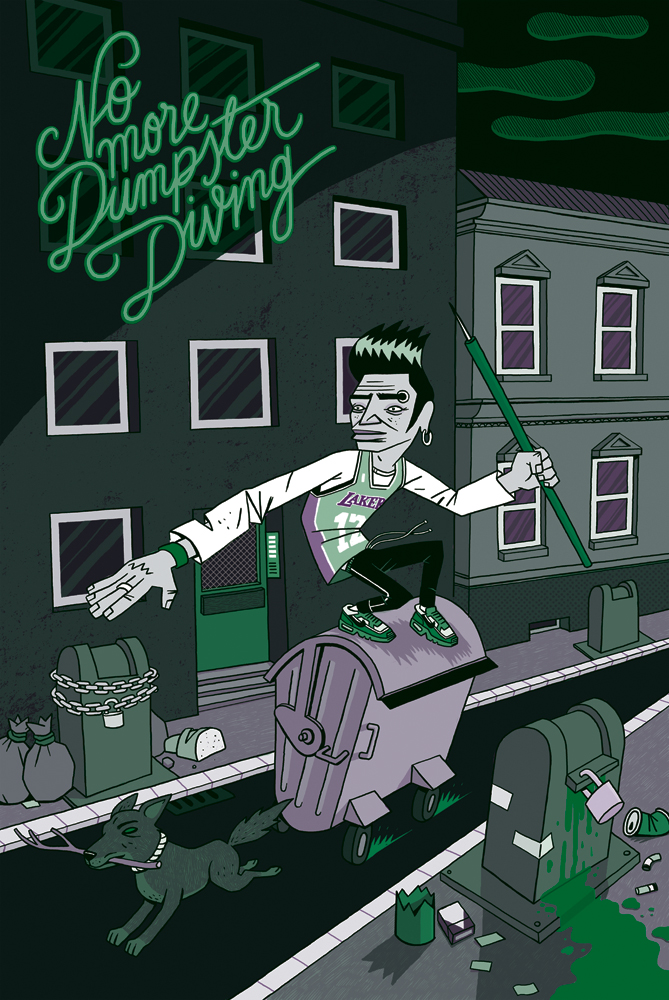
The recent change of Belgrade’s garbage collection system is being investigated by Vladan Jeremic in our book “Unpleasant Design”. It systematically performs social segregation based on design implementation. His essay “Greedy containers” focuses on the hidden politics on garbage removal of the city of Belgrade in which authorities deployed a waste container system that strategically eliminates any third-party usage purely by its design. The result is the profit for a few companies on one side and on the other side, displacement and removal of entire settlements of Roma people into the outskirts of the city without a proper social welfare programme.
Wth this case study, we are going to and analyse the phenomenon and consequences of ‘unpleasant design’ for certain parts of population in our cities. We will do so by focusing on ‘unpleasant design for pigeons’, which itself is a niche within unpleasant design in general.
The majority of data is collected by direct observation – watching, photographing and noting different ways pigeons are prevented from landing on facades and other surfaces. We consulted documentation from mass media advertising, focusing on online resources for pigeon-deterent devices and services. We extensively survey blogs and forums where people discussed problems with pigeons.

a group of pigeons usually found in city centres
(more…)

